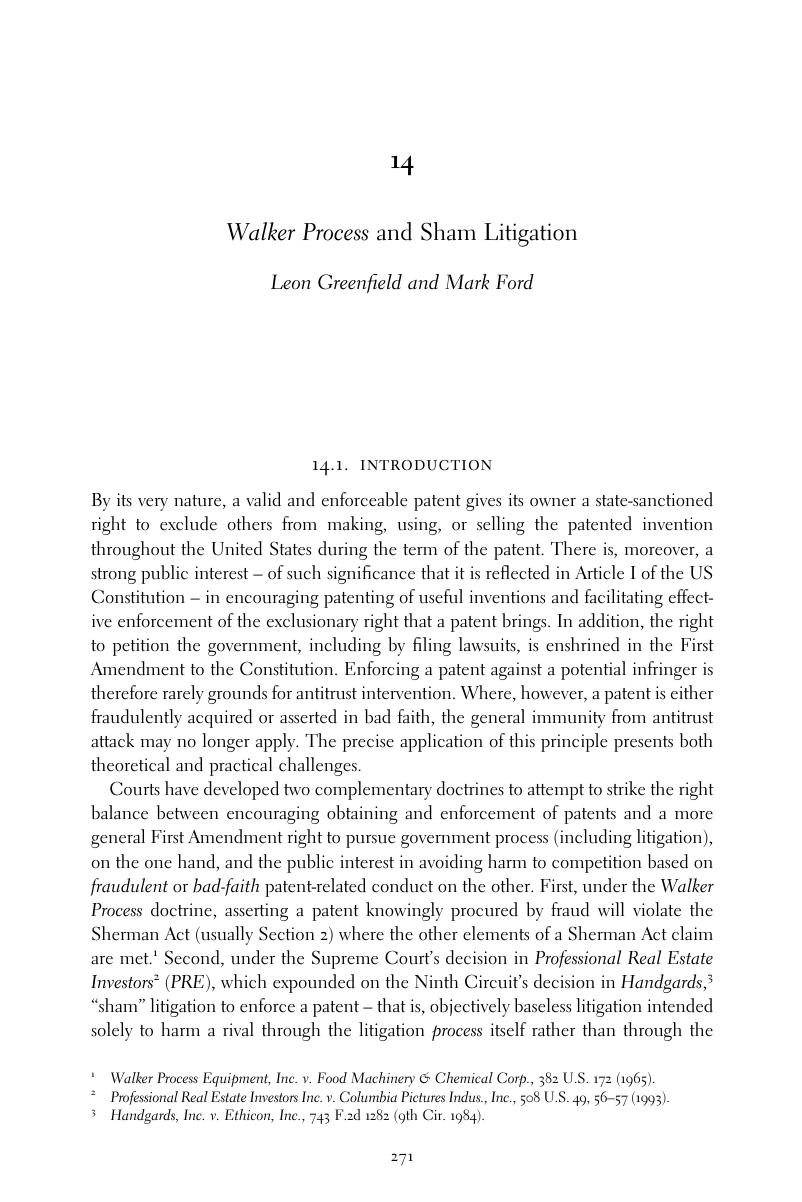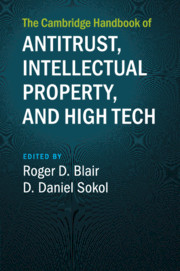Book contents
- The Cambridge Handbook of Antitrust, Intellectual Property, and High Tech
- The Cambridge Handbook of Antitrust, Intellectual Property, and High Tech
- Copyright page
- Contents
- Figures
- Tables
- Contributors
- Preface
- Part I Economics of Antitrust-IP
- Part II Institutional Design: Country Overviews
- Part III Monopolization
- 10 Is Pepsi Really a Substitute for Coke? Market Definition in Antitrust and IP
- 11 Monopoly Power and Intellectual Property
- 12 Exploitative Abuses of Intellectual Property Rights
- 13 Patent Holdups
- 14 Walker Process and Sham Litigation
- 15 Does Antitrust Have a Role to Play in Regulating Big Data?
- Part IV Competitor Collaboration
- Part V Vertical Relations
- Part VI Mergers in High Technology
- Index
- References
14 - Walker Process and Sham Litigation
from Part III - Monopolization
Published online by Cambridge University Press: 04 May 2017
- The Cambridge Handbook of Antitrust, Intellectual Property, and High Tech
- The Cambridge Handbook of Antitrust, Intellectual Property, and High Tech
- Copyright page
- Contents
- Figures
- Tables
- Contributors
- Preface
- Part I Economics of Antitrust-IP
- Part II Institutional Design: Country Overviews
- Part III Monopolization
- 10 Is Pepsi Really a Substitute for Coke? Market Definition in Antitrust and IP
- 11 Monopoly Power and Intellectual Property
- 12 Exploitative Abuses of Intellectual Property Rights
- 13 Patent Holdups
- 14 Walker Process and Sham Litigation
- 15 Does Antitrust Have a Role to Play in Regulating Big Data?
- Part IV Competitor Collaboration
- Part V Vertical Relations
- Part VI Mergers in High Technology
- Index
- References
Summary

- Type
- Chapter
- Information
- Publisher: Cambridge University PressPrint publication year: 2017

